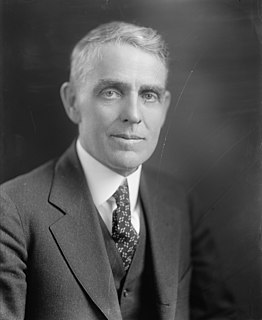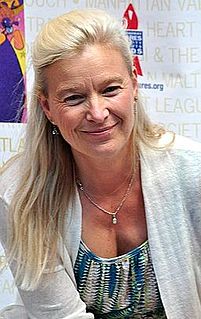A Quote by Wendell Berry
Urban conservationists may feel entitled to be unconcerned about food production because they are not farmers. But they can't be let off so easily, for they are all farming by proxy.
Quote Topics
Related Quotes
You do need some dispensation for local farmers, because the fast food industry will promote the unsanitary conditions of farming. With vegetables, you have to be careful where they come from; you have to know the farmers and trust them. If you buy from the farmers' market, it's already been investigated.
An environmentalist can oppose factory farming because it's reckless stewardship. A conservative can oppose factory farming because it is destructive to small farmers and to the decent ethic of husbandry those farmers live by. A religious person can oppose factory farming because it is degrading to both man and animal - an offense to God.
Twelve thousand years ago, everybody on earth was a hunter-gatherer; now almost all of us are farmers or else are fed by farmers. The spread of farming from those few sites of origin usually did not occur as a result of the hunter-gatherers' elsewhere adopting farming; hunter-gatherers tend to be conservative.... Instead, farming spread mainly through farmers' outbreeding hunters, developing more potent technology, and then killing the hunters or driving them off of all lands suitable for agriculture.
Most people no longer believe that buying sneakers made in Asian sweatshops is a kindness to those child laborers. Farming is similar. In every country on earth, the most human scenario for farmers is likely to be feeding those who live nearby-if international markets would allow them to do it. Food transport has become a bizarre and profitable economic equation that's no longer really about feeding anyone ... If you care about farmers, let the potatoes stay home.
All communities, and low-income communities especially because of food insecurity and lack of access to healthy foods, need more farmers markets, need more community gardens and urban farms. It would be great if people living in communities had the tools and resources to grow food in their own backyard - community-based food systems.
Go to the farmers market and buy food there. You'll get something that's delicious. It's discouraging that this seems like such an elitist thing. It's not. It's just that we have to pay the real cost of food. People have to understand that cheap food has been subsidized. We have to realize that it's important to pay farmers up front, because they are taking care of the land.
We are living as if we had three planets' worth of resources to live with rather than just one. We need to cut by about two-thirds our ecological footprint. For that we need one planet farming as well as one planet living - one planet farming which minimises the impact on the environment of food production and consumption, and which maximises its contribution to renewal of the natural environment



































